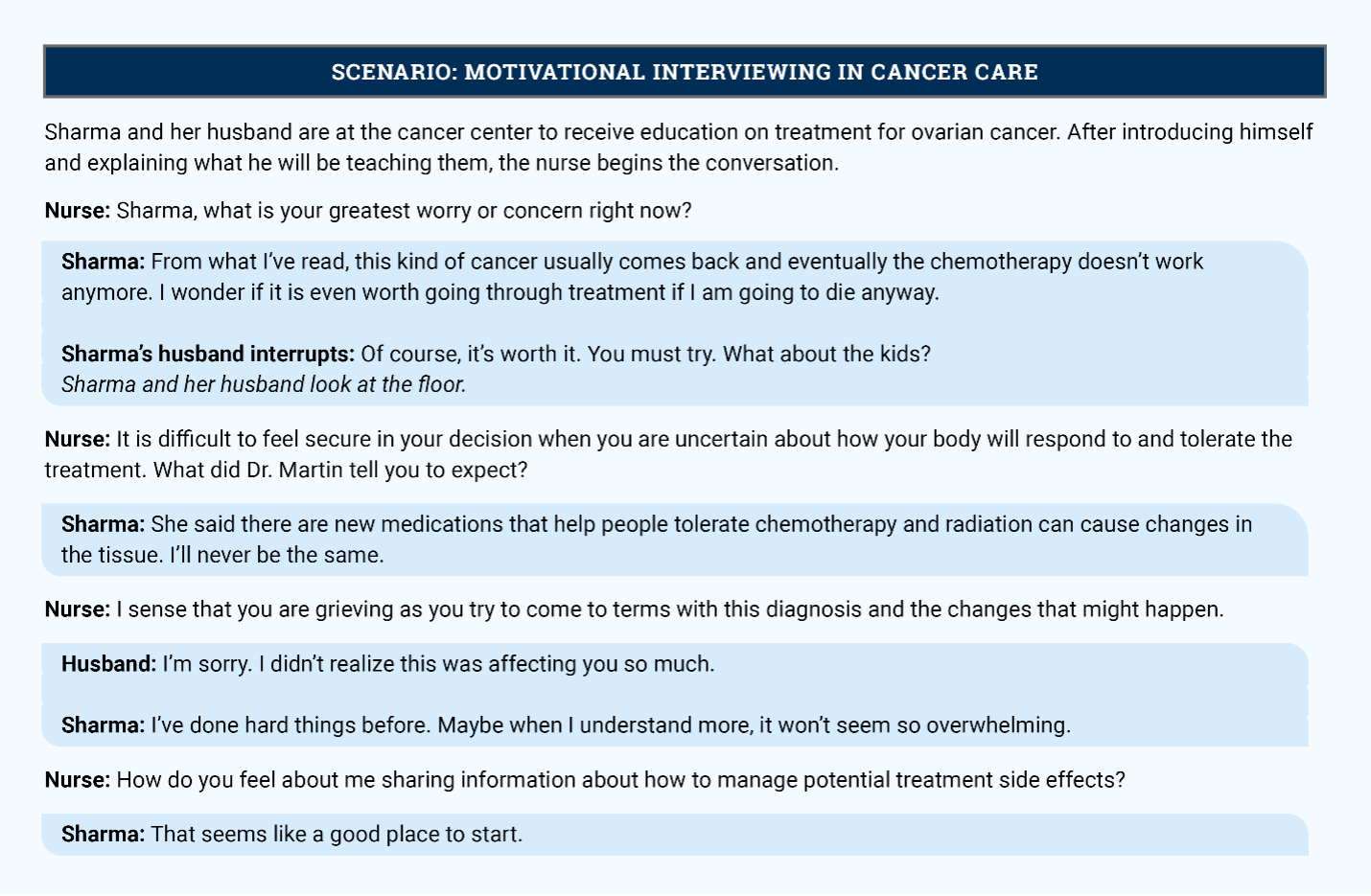Use Motivational Interviewing to Tailor Your Conversations to Your Patients’ Unique Needs
People encounter significant changes after being diagnosed with cancer. Oncology nurses can help patients and caregivers adapt by using motivational interviewing (MI)–based communication strategies.
An essential element of MI is, first and foremost, relating to the patient as a person (https://doi.org/10.1108/IJWHM-03-2020-0041). People innately know themselves, yet they may need help identifying their personal strengths as they grapple with a new diagnosis. Identifying patients’ most pressing concerns is a way of recognizing their uniqueness (https://doi.org/10.1108/IJWHM-03-2020-0041) and building a foundation of trust. Partnership, acceptance, compassion, and empowerment embody the essence of MI (https://doi.org/10.1108/IJWHM-03-2020-0041).
MI strategies take practice, yet the rewards can benefit patients and healthcare practitioners alike. Research shows that addressing patients’ individuality (https://doi.org/10.1108/IJWHM-03-2020-0041) can prevent the monotony of repeating the same education in the same way for each patient, potentially reducing clinicians’ disengagement.
Patient education is an oncology nursing core competency (https://view.ons.org/CZbadk), and we have a responsibility to make each teaching moment count. Assessing what your patient already understands about their diagnosis and treatment plan can help you build on that base and clarify any misperceptions at the onset. In the scenario in the sidebar, notice how the nurse uses each value to guide the conversation.

